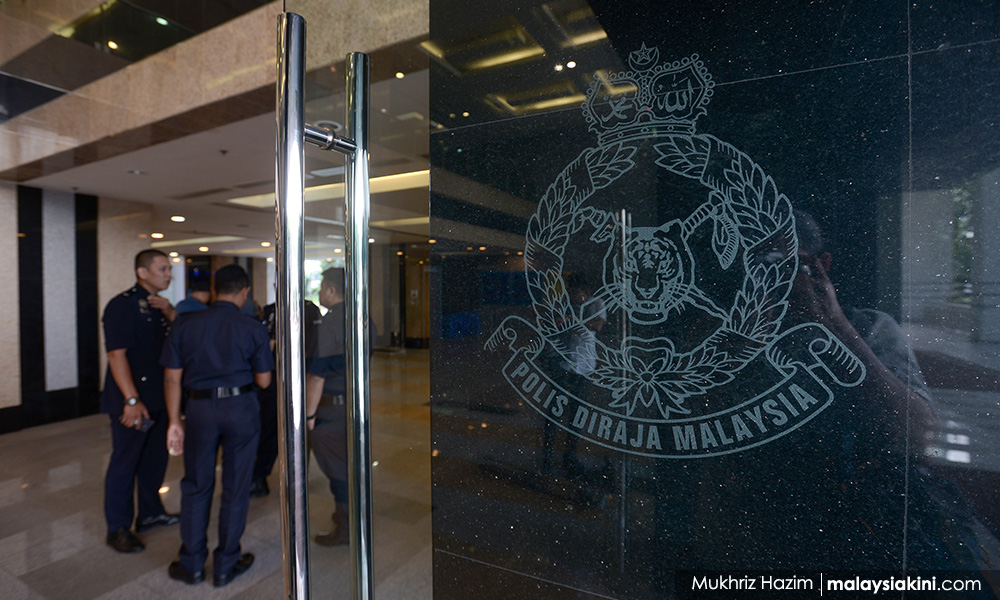Mengkibol assemblyperson Chew Chong Sin has appealed to Prime Minister Anwar Ibrahim to relax the visitors’ dress code at government premises.
He said exceptions should be made for important or urgent business in places such as police stations and hospitals.
“Exceptions should also be made if it involves difficulties such as long distance from home, traffic congestion, or shortage of time. Consideration and discretion should be exercised with courtesy and empathy, especially by the officer on duty,” the DAP representative added.
Chew (above) said this in an open letter addressed to Anwar yesterday.
The letter came after an incident at the Kajang district police headquarters in Selangor on Jan 30, where a woman went to lodge a police report about a traffic accident but was turned away because she was wearing shorts.
She was allowed to enter about 15 minutes later, after changing into long pants.
Inspector-General of Police Acryl Sani Abdullah Sani, however, described the incident as a “misunderstanding”.
Chew contended that the action of the police was in violation of Section 107(4) of the Criminal Procedure Code, which stipulates that police officers are duty-bound to receive information regarding any offence committed.
He said there were cases where hospital patients’ next of kin were barred from dealing with hospitals due to dress code requirements, despite having an emergency.
‘Dress code just a guideline’
Meanwhile, the All Women’s Action Society (Awam) said dress codes were merely guidelines and did not have the force of law. As such, government agencies cannot deny their services to the public on the basis of their attire.

“Should you be denied services or receive discriminatory remarks on the basis of your attire, you can lodge a complaint at the corresponding government agency or department’s reporting channel.
“Always remember that we are a proud country of diverse ethnicities and cultures - self-respect and respect for other cultures must be given due consideration,” Awam said in a statement yesterday.
The group also noted that there is no standard dress code applied across all police stations, and notice is often only given to visitors once they have already set foot in police stations or other government premises.
Government officers, Awam said, also often fail to weigh the urgency of matters against the need to comply with dress codes.
“The discriminatory and dehumanising nature of moral policing allows the public free rein to cast unjustifiable judgments about an individual’s worth, character, capabilities and morality based on attire.
“It also inadvertently, and systematically, denies civilians their fundamental rights, access to essential welfare and health services, and even employment opportunities on the basis of these judgments.
“This only perpetuates an objectifying environment which can contribute to low self-esteem and impact negatively one’s mental health. Further, dress policing imposes significant responsibility and burden on women to cover up and shame or punish them for not doing so,” it said.
“All these factors interact to normalise gender-based violence, and entrench rape culture that does not hold perpetrators fully accountable for their violations whilst subjecting victims (predominantly women) to a vicious cycle of self-blame and trauma,” it added.
Awam said government agencies should provide gender sensitivity training for their frontline officers, so these officers don’t engage in discriminatory behaviour and can empathise with survivors seeking help.
“In addition to practical training, policy enactments should be made clear to all personnel in the civil sector regardless of rank - preferably in briefings or in the form of policy that is accessible to all civil servants - that there is an expectation for government departments and agencies to deliver quality services to the public.
“Such policies or briefings should also be accompanied by effective reporting mechanisms that are easily accessible, with swift and accountable action/repercussions taken against civil servants who continue the practice of unnecessary dress policing,” the group added. - Mkini




No comments:
Post a Comment
Note: Only a member of this blog may post a comment.